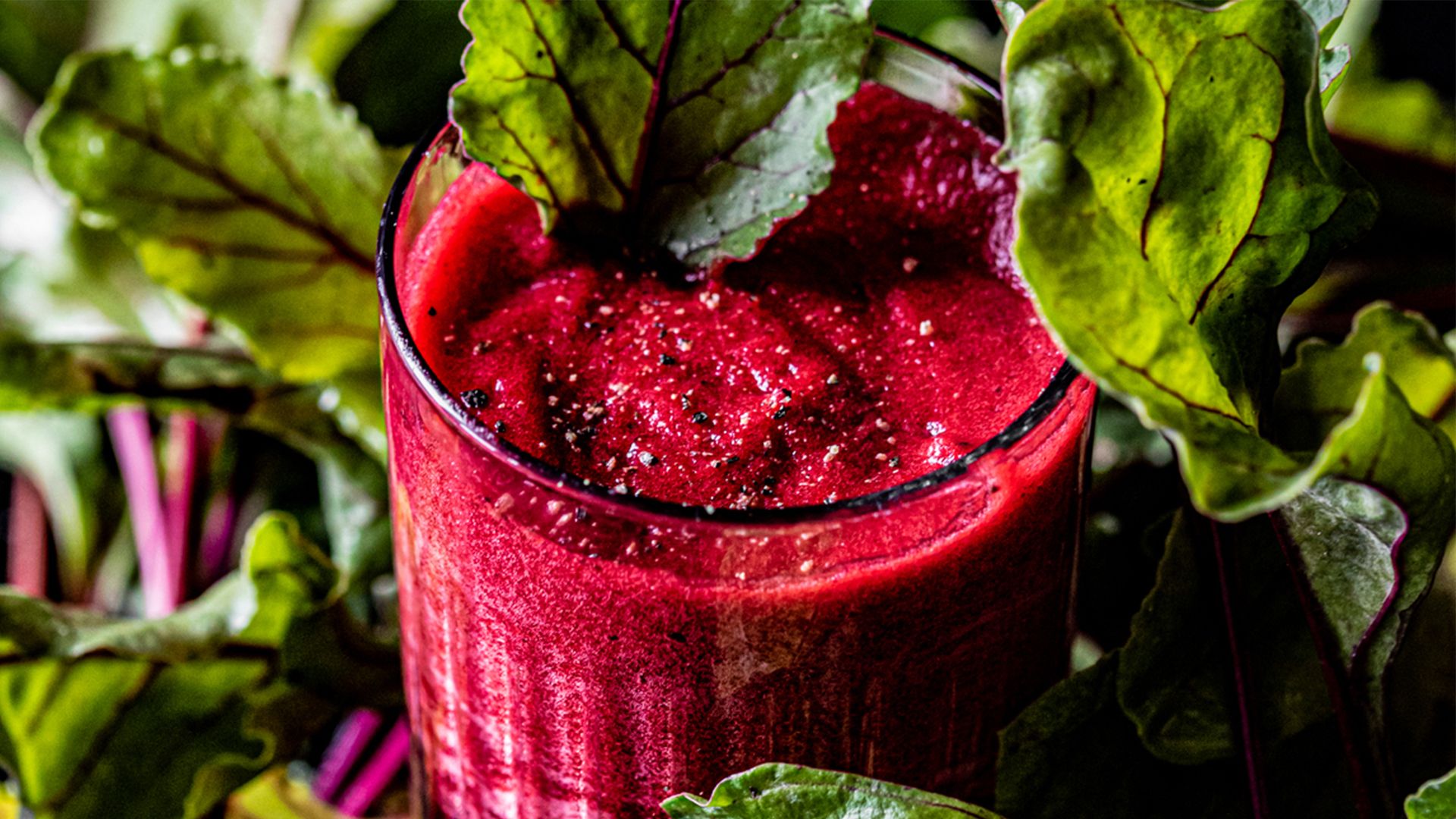With the sober curious movement in full swing, society’s approach to alcohol is changing. Enter a new generation of alternatives to alcohol so you can pass on the booze without sacrificing flavor.
Choosing nonalcoholic options no longer means feeling left out of the festivities while sipping on water. As I’ve learned in the two and a half years since my last alcoholic drink, options abound, and there are plenty of delicious — sometimes even nutritious — beverages that eliminate all chances of FOMO.
Naomi Grace is a Vancouver, British Columbia–based multisensory artist and medicine maker who has been living an alcohol-free lifestyle for about four years. She tells DailyOM that one of the first things she noticed when she stopped drinking was that she stopped going out to see live music.
“The revenue model for the entertainment industry is so closely tied to alcohol,” says Grace, who worked in hospitality as a bartender and then a sommelier for more than two decades before she left the industry. But on a recent trip to Calgary, Alberta, she was able to join her friends for some barhopping, drinking only nonalcoholic cocktails — something she hadn’t experienced before.
“Every place we went, I was able to try something other than soda or juice. I didn’t feel like I was left out of the hospitality experience,” she says.
Here’s the scoop on delicious and fun booze-less drinks to try, whether you’re out on the town or sipping at home.
1. Zero-Proof Cocktails
At home, Grace has transitioned from bartending to crafting zero-proof cocktails, beverages that capture all the layers, balance, and tasting notes of an alcoholic drink, but without the liquor.
“Part of the drink experience is being able to enjoy the different layers of the creation, so there needs to be balanced body and acidity,” she says. “Spirits themselves have a flavor and a viscosity, so if you take a drink that is meant to have alcohol and you remove the alcohol, it’s not going to be as good. I like to try to find different ways to create balanced drinks by looking at the character of the different ingredients, rather than the drink revolving around a spirit.” For Grace, a bartender who doesn’t need to rely on ethanol, or the organic compound present in alcohol, to make a decent-tasting drink is what separates good bartenders from bad ones.
In the United States, booze-free bars like the Sans Bar in Austin, Texas, and AltBar in Rochester, New York, offer patrons the social experience of being in a bar and a list of zero-proof cocktails to go with it.
Brands like Lyres, All the Bitter, Free Spirits, Edna’s, and Opus offer a range of alcohol-free ingredients and ready-made beverages, so you don’t have to give up the ritual of enjoying a nice cocktail when you give up alcohol.
Learn to make your own nonalcoholic libations with DailyOM.
2. Sparkling Seltzers
Move over, plain club soda: The sparkling seltzer trend has exploded, and with so many alcohol-free options available, these fizzy (and often sugar-free) beverages provide an alternative to hard seltzers and a good source of hydration and flavor.
Today’s sparkling seltzer market has taken the game a step further than flavored fizzy water. Sanzo adds real fruit like calamansi, yuzu, mango, and lychee to their sparkling water. Some brands, like Poppi, add prebiotics to varieties like ginger lime and strawberry lemon, while others, like Sound, offer an array of caffeinated and non-caffeinated sparkling waters that combine ingredients like tea, fruit extracts, and botanicals to create natural, refreshing thirst quenchers.
For most, “sober” means avoiding all mind-altering substances. A person who is “Cali sober” (short for California sober) is generally defined as someone who doesn't drink, but does consume cannabis. If you want to ditch alcohol but you’re still looking for a gently altered state, Lagunitas’ line of Hi-Fi Sessions sparkling water is infused with hops, notes of citrus or berry, and between 2 and 10 milligrams of tetrahydrocannabinol, or THC — the active ingredient in cannabis — per can. (It’s important for people who are new to THC to start at a low dose and drink slowly. Consuming too much THC may cause someone to feel anxious, but at the right amount, THC can promote feelings of relaxation and contentment for many people.)
3. Nonalcoholic Beer and Wine
In the wake of the sober curious movement, both the quality and selection of nonalcoholic beer and wine have increased significantly, with many offering the same notes and texture of their alcoholic counterparts (but without the negative side effects). An increasing number of brands are prioritizing iterations of nonalcoholic products that don’t just taste like a watered-down pale ale or grape juice.
Now IPAs, lagers, stouts, sours, and other styles are all available in nonalcoholic versions, some by dedicated nonalcoholic brewers like Athletic Brewing, based in Connecticut, or Partake, based in Calgary. Colorado-based Grüvi also offers an award-winning selection of booze-free beer and wine.
Doug Herbert, a radio anchor and reporter, switched from alcoholic to nonalcoholic beer two years ago, and says giving up alcohol “was one of those big, life-changing choices I didn’t realize I needed as much as I did.”
Herbert, a former beer drinker, tells DailyOM it’s easier to find good alcohol-free beer than it used to be. “I’d say the quality of nonalcoholic beer has improved quite a bit, and availability has improved at bars and restaurants noticeably in the last two years,” he says.
He’s found a few name-brand alcohol-free beer varieties that are both convincing and reasonably priced. “I always liked Heineken before, and when I tried the nonalcoholic version, I found it actually had the same sort of tanginess that I remember,” he says. “I tried the Corona nonalcoholic beer in the summer, and for a light beer, that was nice, too.”
Online boutiques and shops offering curated collections of nonalcoholic sauvignon blancs, merlots, and proseccos are on the rise, including Sansorium, which imports brands like Australia’s Edenvale and France’s Le Petit Chevin. In California, Ariel Vineyards specializes in dealcoholized wine, whereby the alcohol is removed using a cold filtration process.
4. CBD Kombucha
Kombucha, a cultured drink made with tea, sugar, bacteria, and yeast, is believed to have several health benefits and is a potential source of probiotics. Proponents of kombucha say the fermented drink can help with digestion, boost energy, and help rid the body of toxins. Given its slight carbonation, sour taste, and color, kombucha is often offered as an alternative to beer at breweries and restaurants throughout North America.
“I think there’s a trend toward functional and better-for-you beverages,” Gagan Grewal, the founder and CEO of Mindset Kombucha, tells DailyOM. Grewal wanted to create a beverage that took the benefits of the popular health drink a step further, so he and his team developed a shelf-stable kombucha infused with cannabidiol, better known as CBD, a nonintoxicating, active ingredient in cannabis that may help reduce anxiety, insomnia, and chronic pain.
“We took a complete look at kombucha, at the medicinal and the homeopathic benefits of it, and thought if we were able to take the goodness of that and combine it with CBD, it would make for an amazing drink,” he says. Mindset experimented with 90 different iterations before they landed on a formulation that hit the mark.
“One of the challenges around drinking is we want to constantly be sipping on something,” says Grewal. “By having a CBD drink that makes you feel good, you replace the ceremony around alcohol, and you’re not limited to how much you can have.” The “good” that Grewal refers to would be the positive effects that CBD can have on one’s mood. Many people who use CBD report that it reduces anxiety.
Mindset is available in unique flavors like fruit jam, orange rooibos, and ginger turmeric, with each can containing 25 milligrams of CBD. CBD is not intoxicating like THC; however, CBD kombucha drinks, such as those from Mindset, may be better suited to people who consider themselves Cali sober.
5. When You Want Something Hot: Superfood Lattes
Great for those cozy winter days in place of your hot toddy, superfood lattes are just what they sound like, minus the caffeine: a hot milk-based drink combined with the power of a nutrient-rich superfood, like turmeric, beetroot, spirulina, matcha, or functional mushrooms including chaga, lion’s mane, and reishi. These superfoods are known to be packed with antioxidants, vitamins, minerals, and other nutrients.
Depending on their ingredients, superfood lattes can be bright and colorful (I recently tried a lavender latte at a local cafe that was a vibrant lilac) and are generally made with plant-based milk such as almond, coconut, or oat milk.
These hot nutritious beverages can be found at a growing number of cafes, but can also be made at home. Brands like Brooklyn’s Golde and Vancouver’s Blume offer ready-made blends that simply require you to add your milk of choice.
Whether you’re sober, sober curious, or just curious about all the fuss, an abundance of alcohol-free alternatives means there’s no excuse not to give one of these booze-free beverages a try. Whether you prefer shaken or stirred, fizzy or flat, sweet or sugar-free, there’s an option for every palate that guarantees you won’t miss out on flavor when you’re choosing to take a pass on alcohol.

